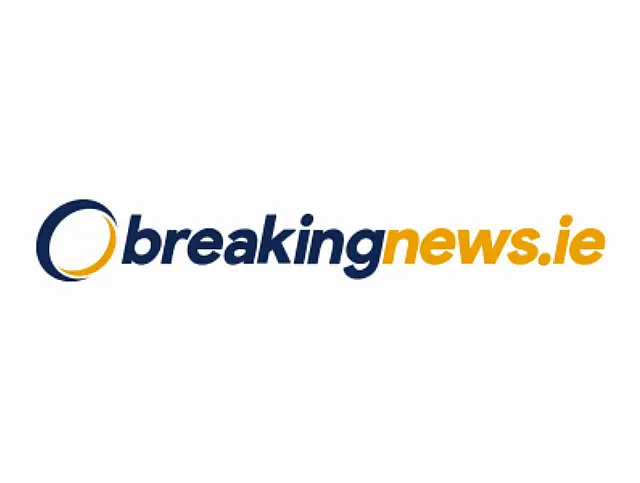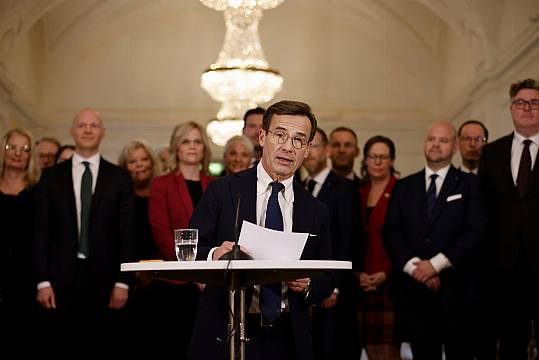Incoming Swedish Prime Minister Ulf Kristersson has vowed to set the country on a new course on immigration, criminal justice and energy policy as he presented a centre-right coalition government led by his conservative Moderate Party.
The new Cabinet consists of 24 ministers — 13 men and 11 women.
Thirteen are Moderates, six are Christian Democrats and five are Liberals.
The three centre-right parties secured a majority in Parliament after the September 11 elections with the help of the Sweden Democrats, a far-right party which has entered the political mainstream after years of being treated as a pariah by the other parties.

Moderate Party parliamentary leader Tobias Billstrom was appointed foreign minister while the head of Parliament’s defence committee, Pal Jonson, another Moderate, was tapped as defence minister.
Christian Democrat leader Ebba Busch became energy minister.
Romina Pourmokhtari, 26, of the Liberals and in charge of climate and environment, made history as Sweden’s youngest Cabinet minister.
Elisabeth Svantesson, the Moderate Party’s spokeswoman on economic policy, was appointed finance minister.
The new government represents a sharp shift to the right for Sweden, where the centre-left Social Democrats had been in power for eight years.
In a speech to Parliament, Mr Kristersson promised a review of the penal code and expanded powers to police to fight criminal gangs which have grown more powerful and violent in recent years.

“No other country in all of Europe has the same trend of violence as Sweden – 53 fatal shootings so far this year, often outright executions,” he said.
“The government now begins the biggest offensive in Swedish history against organised crime.”
He also promised a “paradigm shift” on immigration, ending decades of liberal immigration policies which had started to tighten under the previous Social Democratic government.
“Immigration to Sweden has been unsustainable”, resulting in poor integration, unemployment, insecurity and other problems, Mr Kristersson said.
About 20% of Sweden’s 10 million residents are foreign-born, many of them refugees from war-torn countries including Syria, Iraq, Afghanistan and Somalia.
Attitudes toward immigration have hardened in Sweden in recent years, fuelling the rise of the Sweden Democrats, which is supporting Mr Kristersson’s government in exchange for a say on government policy.

Centre-left opposition politicians have accused Mr Kristersson’s coalition of shattering Sweden’s international reputation as a tolerant, welcoming nation.
On energy, Mr Kristersson signalled an expansion of nuclear power, which previous Swedish governments had started to dismantle.
He said Sweden’s goal on electricity production would change from “100% renewable” to “100% fossil-free,” which leaves room for nuclear energy.
The 58-year-old Moderate Party leader backs the bid by Sweden and neighbouring Finland to join Nato and said his government will stick to the previous government’s agreement with Turkey to withdraw support for Kurdish groups Ankara accuses of terrorism.
“Together with Finland, Sweden will complete the accession to Nato,” Mr Kristersson said.







